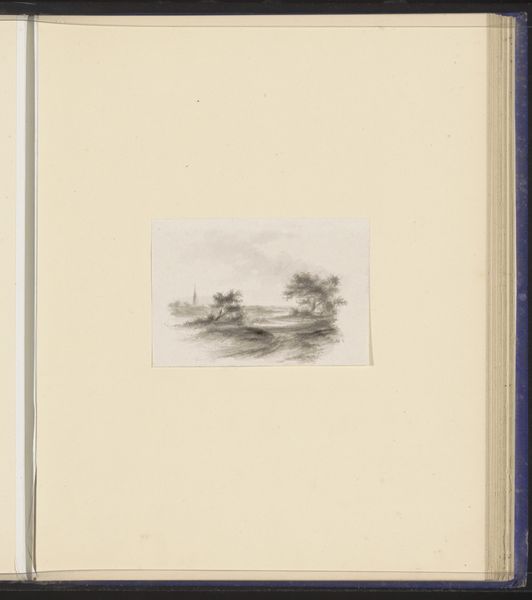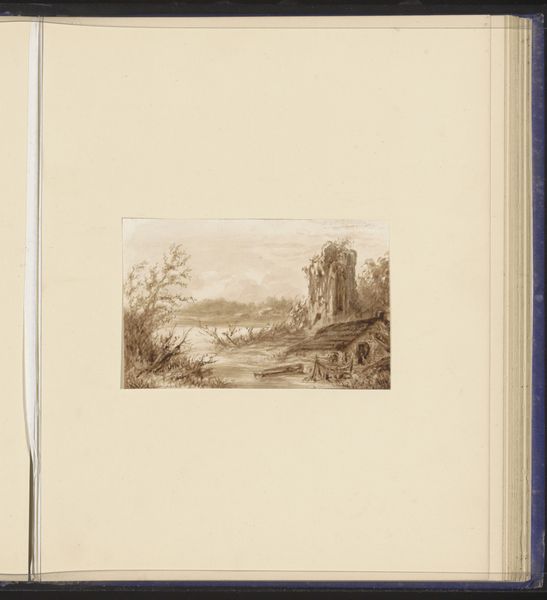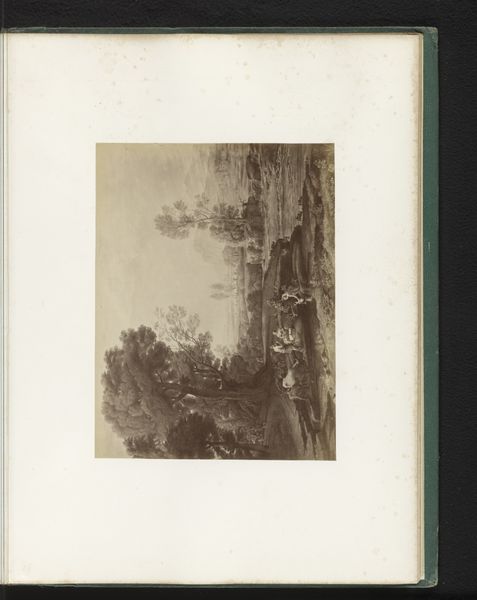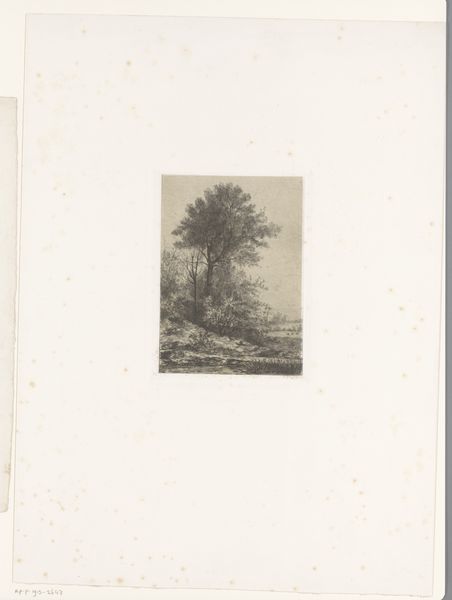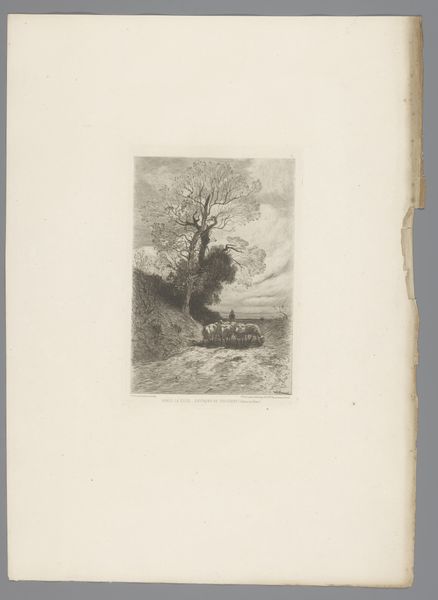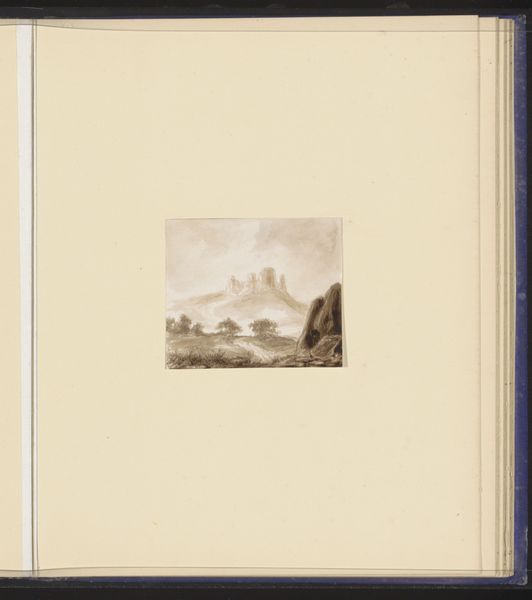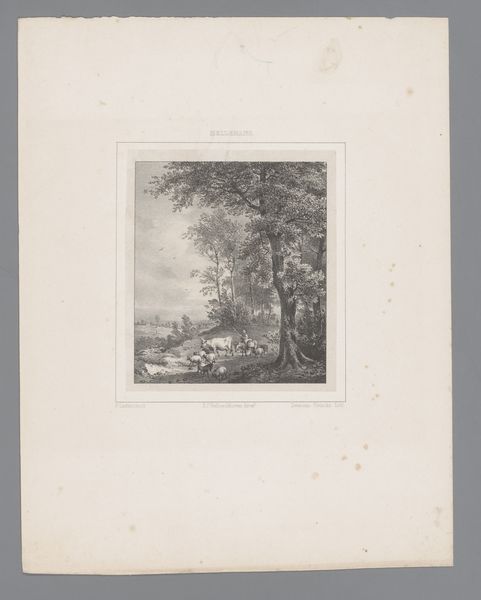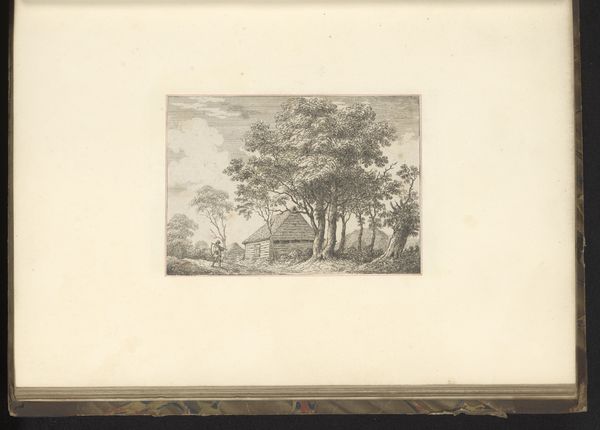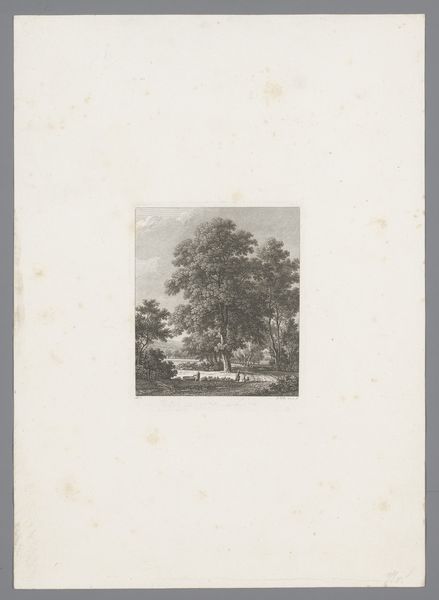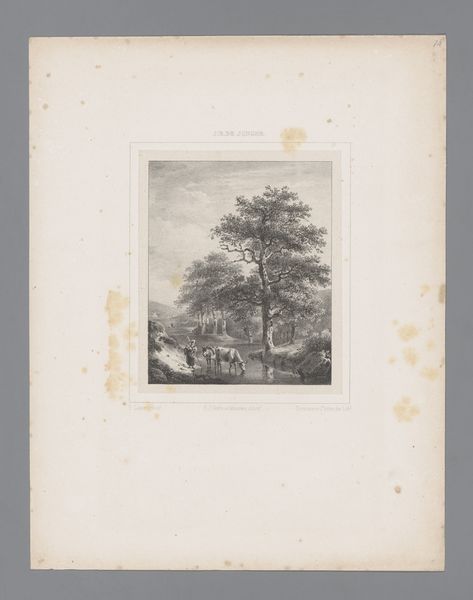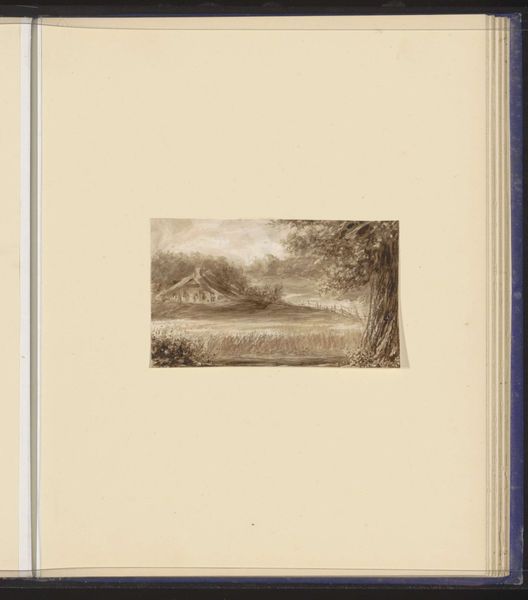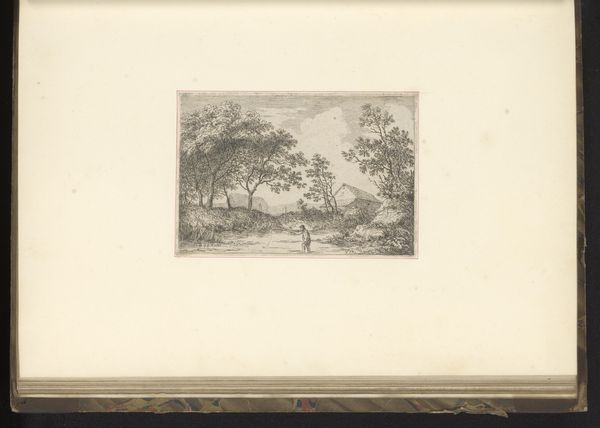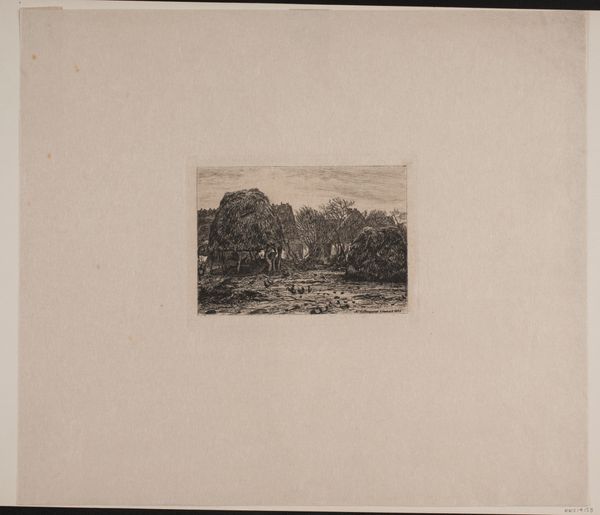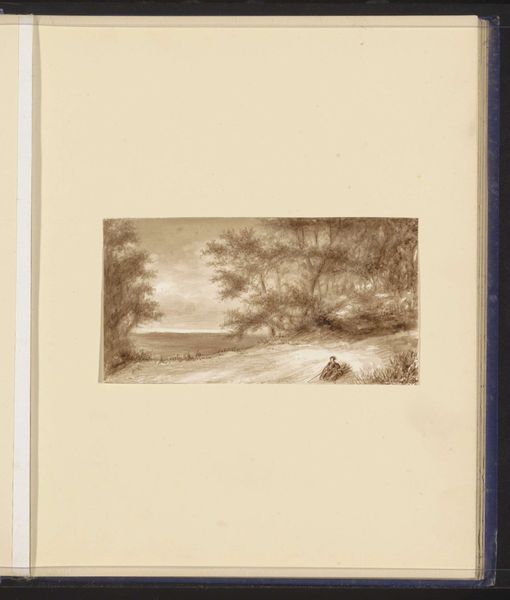
Dimensions: height 75 mm, width 96 mm
Copyright: Rijks Museum: Open Domain
Alexander Ver Huell made this landscape with water, rocks, and a ruin with pen in brown in the 19th century. The monochrome palette immediately sets a somber tone, focusing our attention on the interplay of light and shadow across the scene. Notice how Ver Huell structures the composition. The ruin, positioned centrally, is framed by the natural elements—water in the foreground and imposing rocks on the right. This arrangement creates a dialogue between nature and the remnants of human construction. The pen strokes, particularly in the rocks, are dense and layered, suggesting a weight and permanence. The ruin itself, rendered with softer lines, appears almost spectral, a ghost of a former structure. This contrast might evoke a sense of time and decay, reflecting broader Romantic themes of the era. Consider how Ver Huell uses the pen to create not just an image, but a symbolic representation of history. The landscape, in its structured form, becomes a meditation on time, memory, and the dialectic between the natural and the man-made.
Comments
No comments
Be the first to comment and join the conversation on the ultimate creative platform.
